| Listing 1 - 10 of 74 | << page >> |
Sort by
|
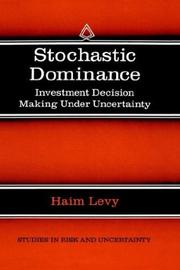
ISBN: 0792382609 1475728425 1475728409 9780792382607 Year: 1998 Volume: 12 Publisher: Boston (Mass.) : Kluwer academic,
Abstract | Keywords | Export | Availability | Bookmark
 Loading...
Loading...Choose an application
- Reference Manager
- EndNote
- RefWorks (Direct export to RefWorks)
This book is devoted to investment decision-making under uncertainty. The book covers three basic approaches to this process: a) The stochastic dominance approach, developed on the foundation of von Neumann and Morgenstern' expected utility paradigm. 2 b) The mean-variance approach developed by Markowitz on the foundation of von-Neumann and Morgenstem's expected utility or simply on the assumption of a utility function based on mean and variance. c) The non-expected utility approach, focusing on prospect theory and its modi fied version, cumulative prospect theory. This theory is based on an experi mental finding that subjects participating in laboratory experiments often violate expected utility maximization: They tend to use · subjective probability beliefs that differ systematically from the objective probabilities and to base their decisions on changes in wealth rather than on total wealth. The above approaches are discussed and compared in this book. W e also discuss cases in which stochastic dominance rules coincide with the mean-variance rule and cases in which contradictions between these two approaches may occur. We then discuss the relationship between stochastic dominance rules and prospect theory, and establish a new investment decision rule which combines the two and which we call prospect stochastic dominance. Although all three approaches are discussed, most of the book is devoted to the stochastic dominance paradigm.
Money market. Capital market --- Stochastic processes --- Investment analysis --- Statistical decision --- Mathematics --- Statistical decision. --- Stochastic processes. --- Mathematics. --- Random processes --- Decision problems --- Analysis of investments --- Analysis of securities --- Security analysis --- Probabilities --- Game theory --- Operations research --- Statistics --- Management science --- Finance. --- Microeconomics. --- Finance, general. --- Price theory --- Economics --- Funding --- Funds --- Currency question
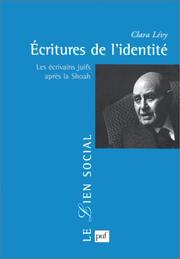
ISBN: 2130496865 Year: 1998 Volume: *3 Publisher: Paris Presses Universitaires de France
Abstract | Keywords | Export | Availability | Bookmark
 Loading...
Loading...Choose an application
- Reference Manager
- EndNote
- RefWorks (Direct export to RefWorks)
Littérature française --- Juifs --- Écrivains juifs --- Auteurs juifs --- Histoire et critique. --- Identité. --- Littérature française --- Écrivains juifs --- Identité. --- French literature --- Identity (Philosophical concept) in literature --- Jewish authors --- Jews --- Judaism and literature --- Identity, Jewish --- Jewish identity --- Jewishness --- Jewish law --- Jewish nationalism --- Authors --- Identity in literature --- Jewish authors&delete& --- History and criticism --- Identity --- Ethnic identity --- Race identity --- Legal status, laws, etc. --- Jewish literature --- France --- 20th century --- Yiddish literature. Authors --- anno 1950-1959 --- anno 1960-1969 --- anno 1970-1979 --- anno 1980-1989 --- anno 1990-1999

ISBN: 0691017336 0691221936 Year: 1998 Publisher: Princeton (N.J.) : Princeton university press,
Abstract | Keywords | Export | Availability | Bookmark
 Loading...
Loading...Choose an application
- Reference Manager
- EndNote
- RefWorks (Direct export to RefWorks)
A world-renowned scholar of plainchant, Kenneth Levy has spent a portion of his career investigating the nature and ramifications of this repertory's shift from an oral tradition to the written versions dating to the tenth century. In Gregorian Chant and the Carolingians, which represents the culmination of his research, Levy seeks to change long-held perceptions about certain crucial stages of the evolution and dissemination of the old corpus of plainchant--most notably the assumption that such a large and complex repertory could have become and remained fixed for over a century while still an oral tradition. Levy portrays the promulgation of an authoritative body of plainchant during the reign of Charlemagne by clearly differentiating between actual evidence, hypotheses, and received ideas. How many traditions of oral chant existed before the tenth century? Among the variations noted in written chant, can one point to a single version as being older or more authentic than the others? What precursors might there have been to the notational system used in all the surviving manuscripts, where the notational system seems fully formed and mature? In answering questions that have long vexed many scholars of Gregorian chant's early history, Levy offers fresh explanations of such topics as the origin of Latin neumes, the shifting relationships between memory and early notations, and the puzzling differences among the first surviving neume-species from the tenth century, which have until now impeded a critical restoration of the Carolingian musical forms.
Gregorian chants --- Neumes --- Music --- Chant grégorien --- Musique --- History and criticism --- Histoire et critique --- History and criticism. --- Chant grégorien --- Instruction and study --- Chants (Plain, Gregorian, etc.) --- Aachen. --- Ad te Domine levavi. --- Ad te levavi. --- Aquitaine. --- Aurelian of Réóme. --- Ave Maria, Bamberg. --- Benedict of Aniane. --- Berno of Reichenau. --- Blandiniensis. --- Brittany. --- Canosa Missal. --- Charlemagne. --- Chartres. --- Cologne. --- Cum audisset. --- Desiderius. --- Deus in nomine tuo. --- Dijon. --- Echternach. --- Einsiedeln. --- England. --- Erit hie vobis. --- Ferretti, Paolo. --- France. --- Gaul. --- Gran. --- Grenoble. --- Haec dicit. --- Hartker. --- Homer. --- Hucke, Helmut. --- Jammers, Ewald. --- Jerusalem. --- John of Saragossa. --- Korvey. --- Laon. --- Leander of Seville. --- Liber Commicus. --- Locus iste. --- Lotharingia. --- Louis the German. --- Medicaea. --- Metz. --- Mount Sinai. --- Nonantola. --- Oravi Deum. --- Passau Gradual. --- Posuisti. --- Rome. --- Soissons. --- St Amand. --- Stavelot. --- Tours. --- Vienna. --- Chant (Plain, Gregorian, etc.) --- Franco-Roman chants --- Gregorian chant --- Old Roman chants --- Plainchant --- Plainchants --- Plainsong --- Roman chants --- Chants
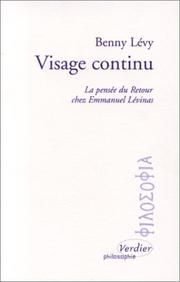
ISBN: 2864322897 9782864322894 Year: 1998 Publisher: Lagrasse: Verdier,
Abstract | Keywords | Export | Availability | Bookmark
 Loading...
Loading...Choose an application
- Reference Manager
- EndNote
- RefWorks (Direct export to RefWorks)
Lévinas, Emmanuel --- Lévinas, Emmanuel, --- Levinas, Emmanuel --- Lévinas, E. --- Leṿinas, ʻImanuʼel --- Levinas, Emani︠u︡el --- לוינס׳ עמנואל --- לוינס, עמנואל --- Lévinas, Emmanuel --- Lévinas, Emmanuel. --- Lévinas, Emmanuel. --- Līfīnās, Īmānwāl --- ليفيناس، إيمانوال --- Lévinas, Emmanuel, - 1906-1995
Book
Year: 1998 Publisher: Paris: Flammarion,
Abstract | Keywords | Export | Availability | Bookmark
 Loading...
Loading...Choose an application
- Reference Manager
- EndNote
- RefWorks (Direct export to RefWorks)
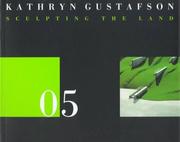
ISBN: 188893106X Year: 1998 Publisher: Washington DC : Spacemaker Press,
Abstract | Keywords | Export | Availability | Bookmark
 Loading...
Loading...Choose an application
- Reference Manager
- EndNote
- RefWorks (Direct export to RefWorks)
Book
ISBN: 2130638341 Year: 1998 Publisher: Paris (6, avenue Reille 75685) : P.U.F.,
Abstract | Keywords | Export | Availability | Bookmark
 Loading...
Loading...Choose an application
- Reference Manager
- EndNote
- RefWorks (Direct export to RefWorks)
Cet ouvrage s'intéresse aux modalités selon lesquelles les auteurs se réclamant d'une manière ou d'une autre de l'identité juive, choisissent d'écrire cette identité. Dans la France de l'après guerre, de l'après Shoah, la question identitaire se pose pour les Juifs avec une acuité particulière. La citation de Derrida placée en exergue, indique combien il serait périlleux d'aborder les ouvrages de cet auteur et de bien d'autres, en éludant la dimension juive de sa trajectoire biographique et de sa production intellectuelle. L'ambition de ce travail consiste à s'interroger sur la nature et la consistance de cette correspondance entre prise de position identitaire et modes d'expression littéraire, en étudiant les textes littéraires publiés entre 1945 et 1980 par des écrivains juifs contemporains de langue française. La prise en compte par l'analyse sociologique d'autres critères pour fonder une appréhension différente des textes littéraires pourrait peut-être permettre de dépasser la dichotomie entre analyse sociologique externe et analyse esthétique interne d'un texte. Il s'agit de reconnaître la pertinence d'autres critères complémentaires.
French literature --- Jewish authors --- Identity (Philosophical concept) in literature. --- Judaism and literature --- Jews --- History and criticism. --- Identity.
Book
Year: 1998 Publisher: Paris Flammarion
Abstract | Keywords | Export | Availability | Bookmark
 Loading...
Loading...Choose an application
- Reference Manager
- EndNote
- RefWorks (Direct export to RefWorks)
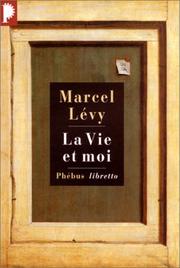
ISBN: 285940516X Year: 1998 Publisher: Paris Phébus
Abstract | Keywords | Export | Availability | Bookmark
 Loading...
Loading...Choose an application
- Reference Manager
- EndNote
- RefWorks (Direct export to RefWorks)
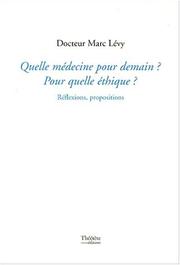
ISBN: 2912860105 Year: 1998 Publisher: Saint-Maximin Théétète editions
Abstract | Keywords | Export | Availability | Bookmark
 Loading...
Loading...Choose an application
- Reference Manager
- EndNote
- RefWorks (Direct export to RefWorks)
| Listing 1 - 10 of 74 | << page >> |
Sort by
|

 Search
Search Feedback
Feedback About UniCat
About UniCat  Help
Help News
News